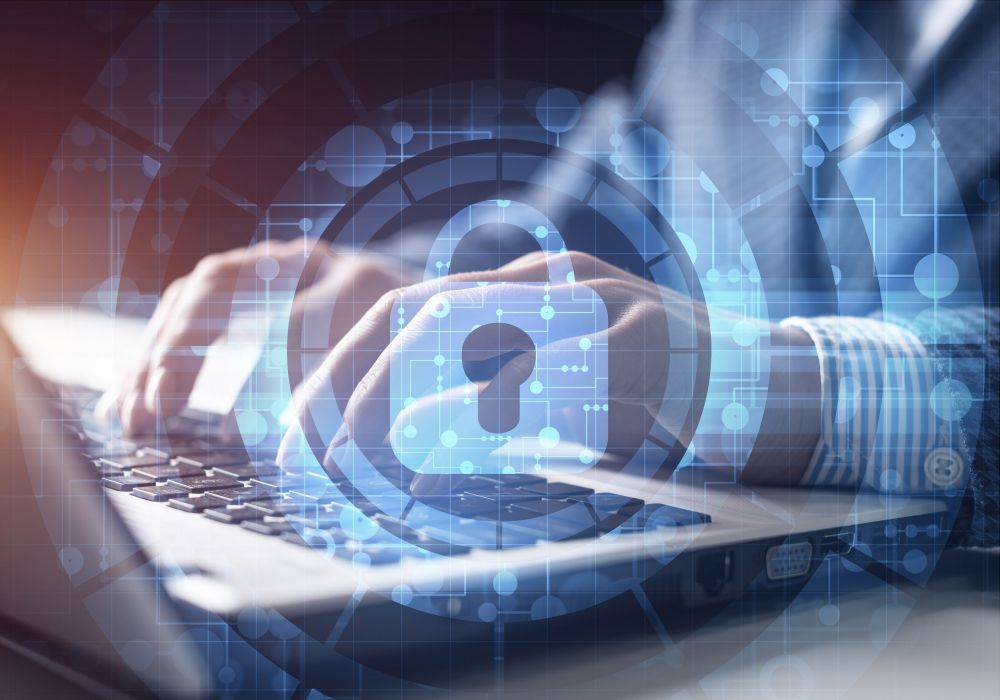Just about everyone is working remotely from home during the coronavirus crisis and it’s important to understand both the value and the risks of doing so.

In the last 10 years, there has been a rising popularity of remote work and companies seeking remote employees, but with the current global pandemic created by COVID-19, working remotely has suddenly become more the ‘new norm’ rather than just an option.
Innovative technology makes working remotely and virtual collaboration easier and more effective than ever before and that’s especially true for IT/Tech contract or freelance professionals. The computer/information systems industry currently ranks second in industries embracing remote work.
According to global statistics 2018, there are 4.3 million remote workers in the USA, which makes up 3.2% of the entire workforce. The same report says that 40% more US companies offered remote work as an option in 2018 than they did 5 years ago. This is a clear indicator of the global trends and employers simply can’t ignore it.
Remote work isn’t just convenient for both employers and employees, it’s also much more effective. Remote work statistics from 2018 show that the majority of people feel there are fewer distractions when working away from the office. Coworkers are obviously a big part of these distractions; 74% of respondents said they work remotely to get away from colleague interruptions. Even when they’re not actively interrupting, they contribute to the overall office noise, which annoys 60% of survey respondents.
Security is Vital When Working Remotely
Security when working from home is of vital importance. You want to be productive and stay up with the workload, while also not worrying about security risks. Following are some simple tips to avoid security mishaps when working remotely:
Protect your devices with an antivirus
Install a reliable security solution on all your devices that handle corporate data. There are free antivirus solutions available and even one at no cost can reduce the risk of trouble.
Update your operating system and programs
Cybercriminals rely on people not updating their software, so be sure to update everything installed on any device that you use for work purposes when working remotely from home.
Configure Wi-Fi encryption
Be sure that your network is configured correctly, otherwise an attacker can connect to your Wi-Fi and take up residence inside your router. Your Wi-Fi password should be strong.
Change your router login and password
If you have never changed the login and password required to enter the router settings, it’s a good time to do it when you’re working from home. The default passwords for many models are not only too weak, but also known across the internet and easily searchable.
Use a VPN in coworking spaces
If you’re unafraid of the coronavirus pandemic and working in a coworking space near your home, then take extra care. Public Wi-Fi networks are often not encrypted at all, and even if they are, anyone can get hold of the password. Use a virtual private network because when you’re connected via a VPN, all of your data will be encrypted regardless of the network settings, and outsiders will not be able to read it.
Lock your device before walking away
Someone can catch a glimpse of your work correspondence even when you’re just having a cup of tea or taking a bathroom break. Therefore, it’s important to lock the screen whenever you get up. This is a smart tip whether you’re working at the office or from home.
Use corporate services for e-mail, messaging, and all other work
Your company most likely has a set of IT services that employees use, such as Microsoft Office 365, a corporate messenger like Slack, or at the very least corporate e-mail.
Stay vigilant
Malicious message can sneak into corporate mail and this can be a problem for remote workers due to the high volume of digital communications when telecommuting.
Take time to read messages carefully and don’t rush to respond to them. Don’t be afraid to call the other party for clarification, or confirm the action one more time with your manager.
Track your progress
If your company has a task tracker, use it to keep track of your work from home. That way you’re ready to report on what you’ve done and how much time it took. It’s best to work normal office hours, so that colleagues can reach you and the working day doesn’t stretch over a 24-hour period. Limit your day to regular working hours.
Create a comfortable workplace
Don’t neglect your health and well-being while working remotely. Work at a desk or table and sit in a comfortable chair. Lighting is important to prevent eye strain and remember to stand up periodically, stretch your legs, stay hydrated, get plenty of sleep, eat regular meals and preferably not at the computer while you’re working.
VAZATA Cybersecurity Monitoring is a cloud-native, streaming data analytics platform that includes a fully managed SIEM and a team of experts to decipher and remediate alerts, whether your systems are on-premises, in the cloud, or both.
We monitor your network in real time 24/7/365. Core services include network intrusion detection, vulnerability scanning, and security log correlation and collection. Additional layers of security to protect your email and defend your desktops and other devices are also available. VAZATA focuses on your cybersecurity and keeps your business secure.
